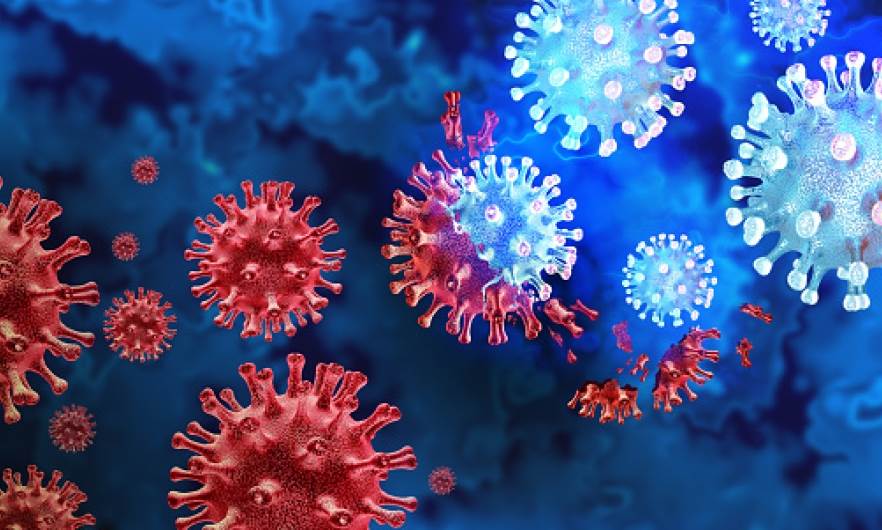Omicron's sweeping spread prompts services breakdown
The new Coronavirus Omicron variant sweeping spread in the United States spurs a breakdown in basic functions and services nationwide.
-

Omicron, the new Coronavirus variant
Ambulances in Kansas speed toward hospitals before abruptly changing course because the hospitals are full. Employee shortages in New York City cause delays in trash collection and subway service, as well as a reduction in the ranks of firefighters and emergency personnel.
Airport officials have closed security checkpoints at Phoenix's main terminal, and schools across the country are struggling to find teachers for their classrooms.
The current surge in omicron-fueled coronavirus infections in the United States is causing a breakdown in basic functions and services — the latest example of how COVID-19 continues to disrupt life more than two years into the pandemic.
“This really does, I think, remind everyone of when COVID-19 first appeared and there were such major disruptions across every part of our normal life,” said Tom Cotter, director of emergency response and preparedness at the global health nonprofit Project HOPE. “And the unfortunate reality is, there’s no way of predicting what will happen next until we get our vaccination numbers — globally — up.”
The breakdown of services
First responders, hospitals, schools, and government agencies have used an all-hands-on-deck approach to keep the public safe, but they are concerned about how long this can continue.
Paramedics in Johnson County, Kansas, work 80 hours per week. Ambulances are frequently forced to deviate from their intended route when the hospitals tell them they are too overwhelmed to assist, confusing the patients' already anxious family members driving behind them. When ambulances arrive at hospitals, some emergency patients are forced to wait in waiting rooms due to a lack of beds.
He described the situation as a "double whammy" for medical facilities. COVID-19 patients at the University of Kansas Hospital increased from 40 on December 1 to 139 on Friday. At the same time, over 900 employees have been sickened by COVID-19 or are awaiting test results, accounting for 7% of the hospital's 13,500-person workforce.
“What my hope is and what we’re going to cross our fingers around is that as it peaks ... maybe it’ll have the same rapid fall we saw in South Africa,” Stites said, referring to the swiftness with which the number of cases fell in that country. “We don’t know that. That’s just hope.”
What is Omicron?
The omicron variant spreads faster than other coronavirus strains and has already taken over in many countries. It also infects people who have been vaccinated or have previously been infected with previous versions of the virus more easily.
However, preliminary research indicates that omicron is less likely to cause severe illness than the previous delta variant, and vaccination and a booster still provide strong protection against serious illness, hospitalization, and death.
Nonetheless, its ease of transmission has resulted in an increase in cases in the United States, affecting businesses, government offices, and public services alike.

 3 Min Read
3 Min Read








